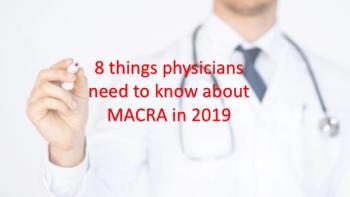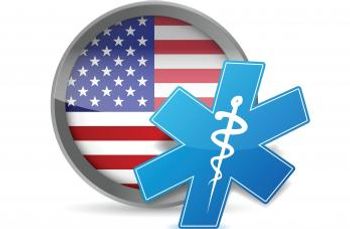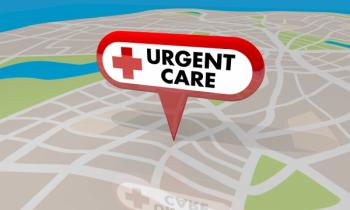
Being an active participant in your finances can help you capitalize on your strengths, repair your weaknesses, and seek opportunities.

Being an active participant in your finances can help you capitalize on your strengths, repair your weaknesses, and seek opportunities.

The Medicare Quality Payment Program, enacted under the Medicare Access and CHIP Reauthorization Act of 2015 (MACRA), will affect participating physicians’ payment in 2021.

An overwhelming number of new medical technologies promises to improve diagnostics and increase efficiencies in healthcare-and we’ll start to see these improvements soon.

ONC officials share their views on what the future of medicine should look like.

Who will solve interoperability, and when?

If it's not relevant, easy-and yes-delightful, the opportunity to engage with the patient is lost.

Manage patients with atrial fibrillation to boost payments under MIPS.

For some doctors, it’s hard to say goodbye to a career they’ve loved and one which has formed a large part of their identity.

Focus on three things for a successful patient interview during a visit: what the doctor thinks the problem is, what the patient thinks the problem is, and each of their goals.

Hackers are increasingly using targeted attacks that resemble legitimate electronic communications.

Next generation medical wearables are facilitating the shift to a value-based care system, moving the point of care to the patient’s home while allowing doctors to monitor the patient’s condition through continuous, real-time data.

Physicians should weigh the pros and cons of participating in accountable care organizations.

Three simple ways healthcare teams can leverage surveys to make pain management more proactive.

A look at the competition for the future of primary care

Experts analyze a proposed Medicare change that could impact the way physicians prescribe pharmaceuticals.

While newsmaking cyberattacks often involve external hacks, many breaches result from mistakes made within the practice.

While Continuing Medical Education (CME) and journals have kept me afloat, it is essential to find new creative ways to keep pace with the previous academic rigor of residency.

How the system works against you -and what to do about it.

Physicians engaging with publicly traded companies, such as serving on boards or as expert advisers, should pay particular attention to the rules around their agreements.

Telemedicine holds promise, but it is just another tool in a clinician’s care delivery toolbox.

Every year, Medical Economics asks physicians to rate the EHR system they use in their practice on a number of factors ranging from usability to customer service.

What does the shrinking market mean for physicians?

Even with time constraints, it’s possible for primary care physicians to compassionately and effectively guide patients in decreasing their weight.

Across the various models for shared-service delivery in chronic care, one theme that stands out is the huge benefits that home visits can bring.

An American solution focusing on individuality and conserving resources can save the Medicare program.

Jonathan Kaplan, MD, MPH, reflects on what he learned from buying a plastic surgery practice.

Sutures are a common element of the wound closure performed immediately after a surgical procedure, and occasionally may be reimbursed separately.

Use of pharmacogenomic testing enables physicians to ensure that the safest, most effective medications are prescribed to every patient, reducing trial and error prescribing and improving treatment outcomes.

Tell us if you think Medicare for all would improve patient care in the United States.

Routinely evaluating patients’ needs in the increasingly on-demand approach to healthcare is critical to success.